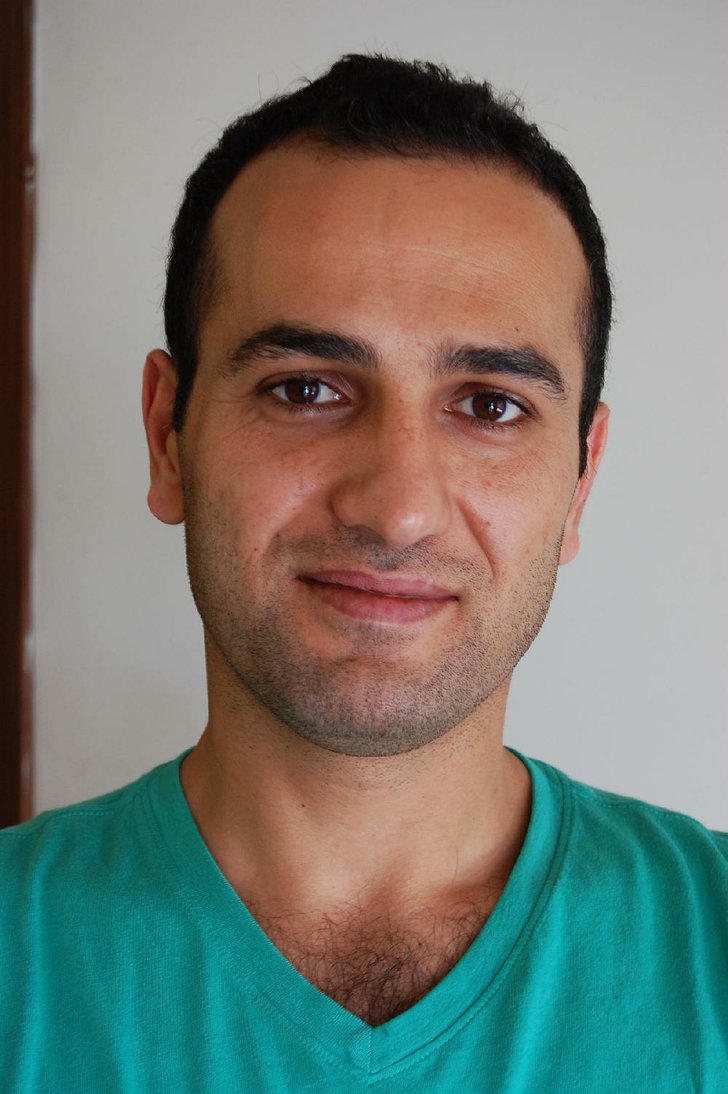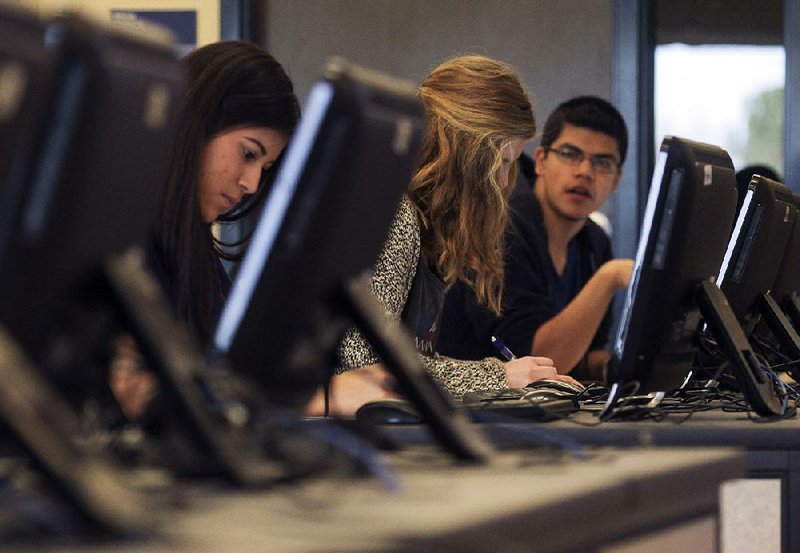Arkansas opened arms to him, Syrian says

A Syrian journalist, who became a refugee, chose Fayetteville as his temporary home in part because he needed some peace and quiet, and Arkansas is known as the "Natural State."
Though Omar al-Muqdad moved to Alexandria, Va. -- just outside Washington, D.C. -- about four months after he arrived in 2012, he has fond memories of Dickson Street and the people he met in Northwest Arkansas.
He confirmed that he was the anonymous refugee, aided by Catholic Charities of Arkansas, who was the subject of an article in Wednesday's Arkansas Democrat-Gazette.
"When people ask me where I'm from, I tell them I come from Arkansas," al-Muqdad said in a telephone interview Wednesday. "It was my home. These were the people who welcomed me."
He carries an expired Arkansas identification card to offer as proof.
"In Virginia, they say Arkansas people are not warm people, but this is not what happened," he said. "The church there helped me a lot. They were always asking what I needed. The community was always offering help.
"That's why it's so surprising what the governor did. All I saw was love, and I'm really thankful, and if I can do anything to pay them back I'm not going to hesitate for a second."
Gov. Asa Hutchinson announced Monday that he would oppose any efforts to relocate Syrian refugees in the state. During a conference call Tuesday, Hutchinson said he was concerned about the screening process.
Al-Muqdad said decisions by Hutchinson and more than 25 other governors concern him.
"It helps the terrorists' propaganda," he said. "I know that the Americans are not happy with what they're hearing from their governors. There's a moral obligation, that's what [Americans] believe in. That's why I'm here in America, because of the culture, the moral obligations, the freedom."
Hutchinson said that because refugees often lack documentation, it's hard to know if one could be a terrorist.
Al-Muqdad said he fled to Turkey from Syria after spending about three years in jail for opposing the government as a journalist.
He had no passport or documentation, but applied for refugee status with the United Nations and then underwent a background check with the United States.
The process took about a year, he said.
"We all want America to be safe," al-Muqdad said. "It's fair to go through a background check, but you can't close the door."
Al-Muqdad is from Daraa in southern Syria, where the revolution began. The Islamic State's stronghold is in the northern part of the country.
Between President Bashar Assad's regime and Islamic State fighters, the majority of the country's residents have no choice but to flee, he said.
"Both sides -- both of them want to kill you," he said. "You are crazy if you stay between them."
Al-Muqdad received a political science degree from Damascus University in Syria in 2004.
He is a familiar face to television viewers in the Middle East. He has appeared on television newscasts and in documentary films, including the BBC's Panorama: Syria Inside the Secret Revolution.
He also has been a freelance journalist for several newspapers in the Middle East and a regular correspondent for CNN in Istanbul.
Al-Muqdad said the Paris attacks have left him wondering how people will react to his nationality.
It hasn't been a problem in the past.
"I never, since I came to the United States, I never faced any racism just because I'm from a Syrian background," he said. "People say, well, there's a lot of racism toward newcomers in the country, but I've never faced that, and that's what gives me a good feeling."
Al-Muqdad was first interviewed by the Arkansas Democrat-Gazette in 2012. He said he hopes to become a U.S. citizen next year.
Information for this article was contributed by Bill Bowden of the Arkansas Democrat-Gazette.
